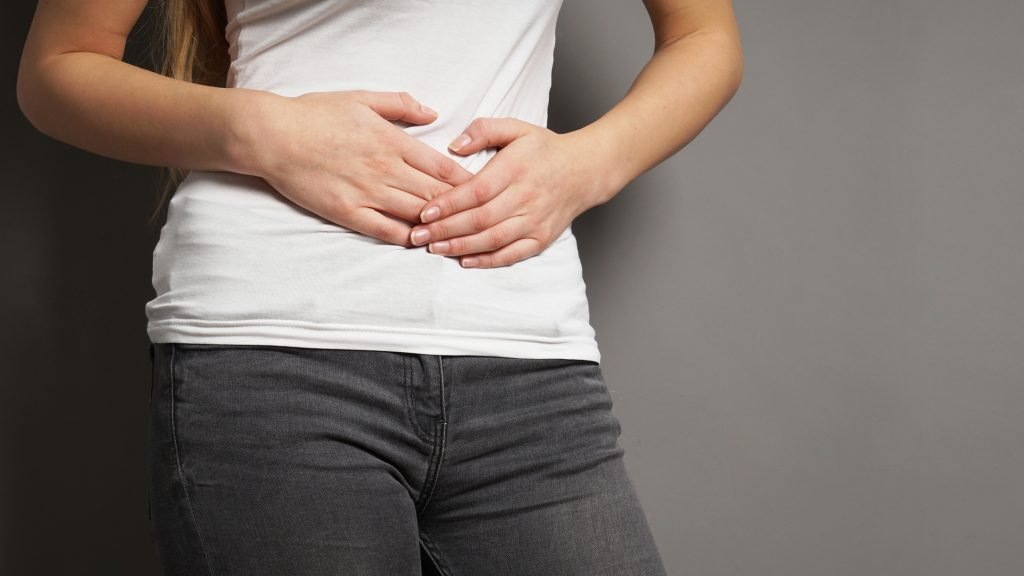Bloating, gassy, cramps, heavy, uncomfortable?
One minute you can’t go to the loo and the next minute you can’t get off it? The likely cause is Irritable Bowel Syndrome (IBS). It’s incredibly common
Unfortunately, within western medicine you will be advised that there’s not a lot you can do. The official view is that it’s a lifelong problem that no one really understands and that there’s no cure for (although over-the-counter medicines can help symptoms). So sorry, move along and deal with it yourself.
I’m here to tell you, there IS hope. Did you know that our genetic testing can inform & arm you with the information you need to manage those symptoms, our nutrient core report will tell you this extremely insightful information:
- Food Response – gluten (coeliac) and lactose intolerance
- Caffeine – sensitivity and metabolism
- Microbiome – diversity
- Vitamin Need – vitamins A, B9 (folate), B12 (cobalamin), C, D and K
- Blood Pressure – sodium-potassium balance & salt sensitive hypertension
- Detoxification – glutathione
- Metabolism – blood sugar control (insulin), appetite (leptin)
- Inflammation – specific (infection response) and systemic
- Circadian Rhythm – early bird or night owl predisposition

One of the most common causes of IBS is SIBO (small intestinal bacterial overgrowth), which accounts for 60+ of IBS cases. This describes a condition where bacteria manage to to grow and thrive in the small intestine. It’s not a question of ‘good’ or ‘bad’ bacteria. There shouldn’t really be many there at all.
It might be that you have a lactose intolerance. This is when your body is not able to tolerate lactose, a type of sugar found naturally in milk and other dairy products, leading to a host of ‘IBS symptoms’. It might similarly be fructose malabsorption. Again, some people are not able to absorb fructose and symptoms are very similar to lactose intolerance.
Dysbiosis is an imbalance in the levels of beneficial (good) and pathogenic (bad) bacteria in the large intestine or colon, potentially caused by the overuse of antibiotics or alcohol, an increase in high sugar diets, and stress.
Or you might have a yeast overgrowth. Simply, the gut environment gets out of balance (due to dysbiosis) such that unwelcome yeast can thrive.
None of these are pressing issues for regular doctors because there is often not the testing or the framework for treatment of these problems. In some cases, digestive problems can be tricky to solve, and it almost always involves a lot of detective work. But if your symptoms are hampering your life in a significant way, I want you to know that there ARE things you can do. Although IBS might be very common, it is not normal to experience the symptoms you do.
What can I do about my IBS now?
There are some simple tricks you can put into practice today and that might make enough of a difference to help you get your life back on track. I’m going to tell you what they are in a moment.
I also want you to consider the degree to which your symptoms bother you. Are you satisfied with just covering up the symptoms and hoping for the best? That might be enough for you. If it isn’t, please book yourself in for our initial consultations where we can advise you further.
10 ways to improve your digestion
The following suggestions are very basic but surprisingly effective at improving symptoms of digestive distress.
DO
- Try a cup of hot water or ginger tea before meals to stimulate digestion.
- Apple cider vinegar (with the ‘mother’) also works – take 1tsp before a meal.
- Think about your food before eating it – the thought and smell kickstarts the digestive process.
- Make sure you’re chewing properly. If you had to spit out the mouthful, no one should be able to tell what you’ve been eating.
- Try a few cubes of pineapple or papaya before a meal. These contain enzymes that can boost your digestion. You might also consider taking a natural digestive enzyme supplement from a health food store to support your body’s natural digestion process.
- Take a 15-minute walk after eating if you can. This lowers blood sugar levels and improves digestion (see, your granny was right).
DON’T
- Eat at your desk at work. Getting up and out is important for so many reasons. In this case, checking emails while you are also eating may have you gulp down your food or not chewing properly. Neither are good for your digestive health.
- Try to eat on the go or when you’re stressed out. You won’t digest your food properly or absorb the nutrients. This is the quickest way to get heartburn.
- Eat fruit after a meal. Fruit likes a quick passage through the digestive system. It can get stuck behind other foods that are digested more slowly and then ferment, causing gas.
- Drink too much water or other fluids with your meal as this dilutes the stomach acid needed to digest your food properly.
Would you like to learn more about how Genetic Testing could help you? Click below.
Share this article …


